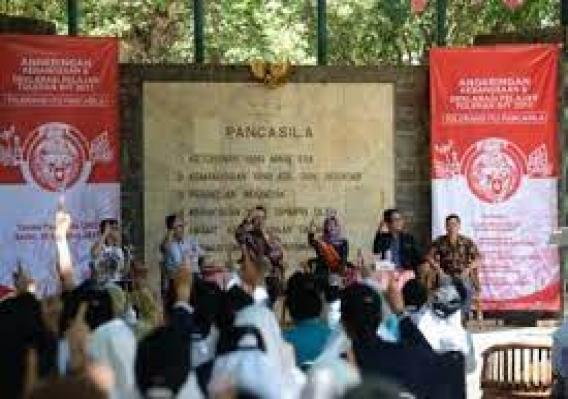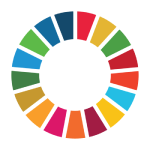Taman Ki Hajar Dewantara UNY as the Student's 'Shade Umbrella'

Papers, presentations, and discussions are almost certainly the staple food for most students. Consequently, students are closely related to such tasks. Sometimes, in fulfilling the demands mentioned above, students look for a kind of comfortable public space to support the 'immediate' work on their assignments.
For Yogyakarta State University students, especially students of the Faculty of Education, the green park in the campus area can be an exciting place to discuss college assignments or have a casual chat, namely Taman Ki Hajar Dewantara. The park, which is located between FIP and FIS, offers a calm, beautiful, and green atmosphere due to shady shade trees. Students usually use this place to relax while waiting for the following lecture, regular get-togethers, and even organizational meetings.
According to Erika, an FIP student, Taman Ki Hajar is very calm. The seat is permanently elongated. Usually, it is always full of students who gather with their respective group affairs. In fact, maybe because it's so comfortable, many sit 'flounder' below.
The origin of the naming of Ki Hajar Dewantara Park is due to the statue of the Father of National Education. So, why was Ki Hajar chosen as one of the 'icons' in FIP?. The primary reason is that he has contributed to Indonesia, especially in the field of education. So, it is hoped that UNY students, especially students of the Faculty of Education, can be inspired to imitate his spirit and work ethic with this statue.
Due to the physical construction of several buildings at UNY, the 'existence' of Taman Ki Hajar has experienced a significant setback. It is rare for students to carry out activities there because apart from the physical development, the condition of the closed park using zinc does not allow students to enter the area.
It is hoped that even though the development goals themselves will be intended for the common good, there are times when it should not shift the existence of this popular public space so that UNY, especially FIP, can still have its "Payung Teduh."






